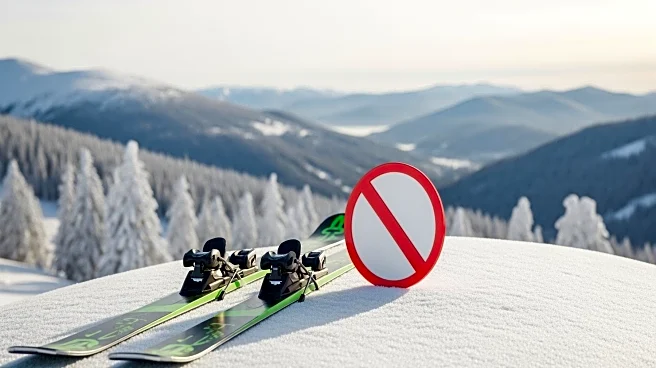What's Happening?
The International Ski and Snowboard Federation (FIS) has decided to prohibit athletes from Russia and Belarus from participating in the qualifiers for the upcoming Milan-Cortina Winter Olympics. This decision,
made by the FIS council, effectively excludes Russian and Belarusian skiers and snowboarders from numerous events at the Games scheduled for February. While the International Olympic Committee (IOC) allows athletes from these countries to compete as 'Individual Neutral Athletes,' the FIS has opted not to implement this system for its qualifiers. The decision also extends to Paralympic events overseen by FIS. Russia's national ski association has expressed deep disappointment, labeling the decision as discriminatory and indicating plans to pursue legal action to ensure athletes are not penalized for political circumstances beyond their control.
Why It's Important?
The exclusion of Russian and Belarusian athletes from the qualifiers could significantly impact the competitive landscape of the Winter Olympics, particularly in events where these countries traditionally excel, such as cross-country skiing and snowboard slalom. The decision reflects ongoing geopolitical tensions and the sports community's response to Russia's actions in Ukraine. It also highlights the autonomy of international sports federations in determining participation criteria, which can lead to varied approaches across different sports. The move may influence diplomatic relations and sports diplomacy, as well as affect the athletes' careers and opportunities on the international stage.
What's Next?
The decision comes just days before the start of the Alpine skiing World Cup season, which could see further developments as the situation evolves. The Russian ski association's intention to pursue legal avenues suggests potential challenges to the FIS decision, which could lead to legal proceedings or negotiations. Additionally, other sports federations may face similar decisions regarding Russian and Belarusian athletes, potentially leading to a broader impact on the Winter Olympics and international sports competitions.









